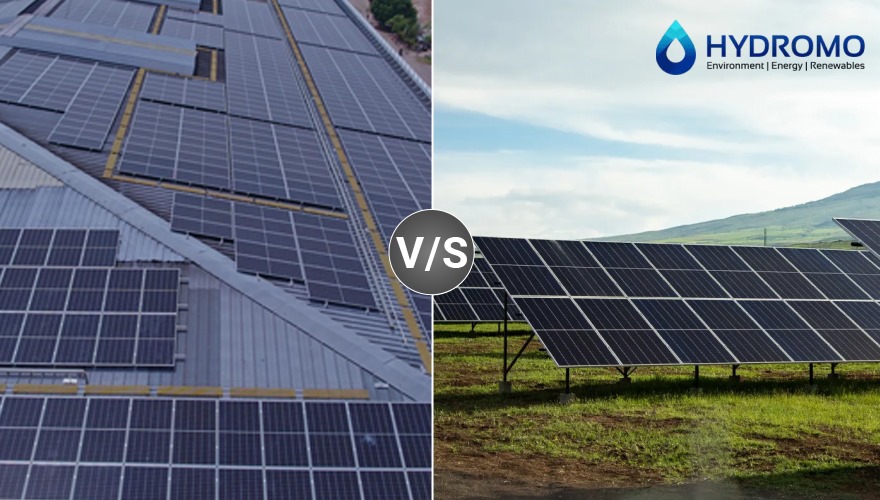
Solar power is one of the most environmentally friendly solutions that has emerged in the quest for sustainable energy. Nonetheless, to a large number of people seeking to change to solar, deciding between solar rooftop systems and traditional solar panels might be baffling. They both utilise the same technology of converting sunlight to electricity; however, the installation, uses and advantages of each differ greatly. This blog bridges the gaps of these differences to facilitate a wise choice.
Understanding the Basics
Solar rooftops are photovoltaic (PV) panels mounted on the roofs of buildings- homes, offices, malls or commercial spaces. These systems will be designed to blend perfectly with roof architecture to convert unused roof area into a clean power generator. They are mostly common in the urban and semi-urban regions that have limited land.
Conventional solar panels, on the other hand are used vaguely to refer to solar modules that can be mounted on all types of surfaces–not only on roofs. This involves solar farms on the ground or carports or remote single-solar power installations in utility locations. The technology behind the two is the same, as they mostly utilize crystalline silicon cells, although their installation and application settings are different by far.
Key Differences at a Glance
| Aspect | Solar Rooftop Systems | Conventional Solar Panels |
| Installation | Fixed on building rooftops | Ground-mounted, rooftops, or other mounts |
| Usage Area | Urban homes, commercial buildings | Large-scale farms, off-grid applications |
| Space Efficiency | Optimizes unused rooftop space | Requires dedicated land space |
| Maintenance | Access depends on roof structure | Easier if ground-mounted |
| Cost | Lower land cost, moderate installation cost | Higher land and infrastructure investment |
| Aesthetics | Integrates with building design | May look industrial or standalone |
Solar Rooftop Systems: Power from Your Roof
Solar rooftop applications maximise the use of available space by converting rooftops that previously were not utilised into renewable energy productive areas. These systems usually relate to the grid, and the users can offset their electricity usage or even earn credit through net metering. They are also able to be off-grid and have some battery storage, which makes power independence possible.
The key factors are evaluating the strength of the roof, orientation and free exposures to gain maximum energy. The rooftop solar panels can be integrated into the architectural environment, and this helps in reducing electricity bills without necessarily purchasing land.
Conventional Solar Panels: The Versatile Powerhouses
Conventional solar panels offer more installation flexibility. Ground-mounted panels allow optimal angling and spacing, catering especially to large utility solar farms needing scale and efficiency. They can also be installed on carports or anywhere with open space.
This is their favorite in commercial, agricultural and remote use. These projects however take up more land and cost more to install upfront infrastructure as opposed to rooftop installations.
Which One Should You Choose?
Choosing between a rooftop solar system and conventional solar panels boils down to individual needs and site conditions:
If you are an urban homeowner or business with limited land but an open rooftop, solar rooftop systems are ideal for maximizing space and reducing your electricity bills.
In the case of utility-scale power generation, farms, or remote applications where there are accessible lands, ground-mounted solar panels are best to maximize productivity, as well as, to maintain.
Conclusion
The two solar rooftop and the traditional solar panels have key roles to play in the shift to renewable power. They have the same clean technology but are fitted in various installation settings and energy requirement. Knowing the difference between them assists consumers, businesses and policymakers to make more sound decisions in order to enjoy a sustainable future.
Tap into the solar power effectively by selecting an appropriate solar solution based on your location, finances and energy requirements and help make the world a cleaner, greener.
